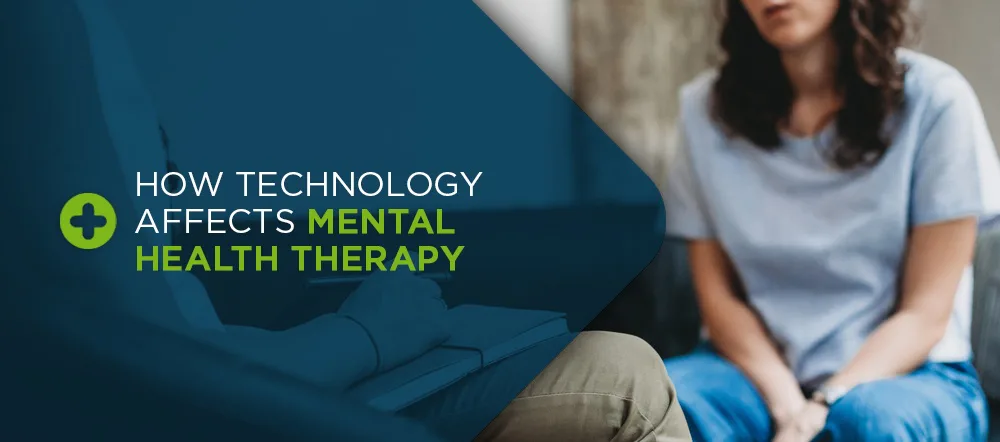How Technology is Reshaping Mental Health Treatment for a Global Audience
Introduction
The landscape of mental health treatment is undergoing a seismic shift, propelled by advancements in technology. In recent years, mental health has gained significant attention, breaking the stigma surrounding it and bringing it to the forefront of global health discussions. The rise of digital tools, telehealth services, and artificial intelligence has created new avenues for treatment, support, and accessibility. This article explores how technology is reshaping mental health treatment, making it more inclusive, effective, and widely available to a global audience.

The Global Mental Health Crisis
Before diving into the technological innovations in mental health treatment, it’s crucial to understand the magnitude of the global mental health crisis. According to the World Health Organization (WHO), approximately 1 in 8 people globally suffer from a mental disorder. Conditions such as depression, anxiety, and bipolar disorder are prevalent, yet treatment accessibility varies drastically by region. Stigma, lack of resources, and cultural differences often impede individuals from seeking help. As we navigate this crisis, technology offers a beacon of hope, promising to bridge gaps in care and deliver effective treatment options to those in need.
Telehealth: Expanding Access to Care
One of the most significant technological advancements in mental health treatment is telehealth. The COVID-19 pandemic accelerated the adoption of telehealth services, making mental health support more accessible than ever before. Virtual therapy sessions allow individuals to connect with mental health professionals from the comfort of their homes, breaking down geographical barriers and reducing the stigma associated with in-person visits.
Benefits of Teletherapy
- Accessibility: Telehealth provides access to mental health services for people in remote areas or those unable to travel. Individuals can receive care regardless of their location, whether in rural settings or countries with limited mental health resources.
- Convenience: Scheduling flexibility allows patients to attend sessions at their convenience, reducing barriers to seeking help. This is particularly beneficial for individuals balancing work, family, and other commitments.
- Anonymity: Virtual sessions can offer a sense of anonymity that encourages individuals to seek help who might otherwise feel uncomfortable in traditional therapy settings.
- Diverse Provider Options: Patients can choose from a broader range of providers, including specialists in specific mental health conditions, regardless of their physical location.
Challenges of Telehealth
While telehealth has transformed access to mental health treatment, it is not without challenges. Technological literacy and access to reliable internet connections can hinder some individuals from utilizing these services. Additionally, concerns around privacy and data security remain paramount, necessitating robust measures to protect sensitive information.
Mobile Apps: Empowering Individuals
Mobile applications have emerged as powerful tools for mental health management, offering a variety of resources at users’ fingertips. These apps cater to diverse needs, from mood tracking to guided meditation, making mental health support more personalized and engaging.
Popular Types of Mental Health Apps
- Mood Trackers: Apps that allow users to log their moods and emotions over time can help individuals identify triggers and patterns in their mental health.
- Meditation and Mindfulness: Guided meditation apps offer techniques to help users manage stress and anxiety, promoting emotional well-being.
- Cognitive Behavioral Therapy (CBT): Some apps provide CBT-based exercises, helping users reframe negative thoughts and develop coping strategies.
- Community Support: Platforms that connect users with peer support groups foster a sense of community, allowing individuals to share experiences and advice.
Evidence of Effectiveness
Research has shown that mental health apps can significantly impact users’ well-being. Studies indicate that consistent use of these apps can lead to reductions in symptoms of anxiety and depression. However, it’s essential to recognize that while these apps can be beneficial, they are not replacements for professional therapy but rather complementary tools.
Artificial Intelligence in Mental Health
Artificial intelligence (AI) is revolutionizing various industries, and mental health is no exception. AI-powered tools can analyze data, predict trends, and provide personalized recommendations, offering new insights into mental health treatment.
Chatbots and Virtual Therapists
AI-driven chatbots serve as accessible, 24/7 support for individuals seeking immediate help. These virtual assistants can provide coping strategies, engage in conversations, and offer resources for further assistance.
- Immediate Support: Chatbots can bridge the gap for individuals in crisis who may need immediate intervention, directing them to appropriate resources or professionals.
- Scalability: AI tools can serve countless users simultaneously, making mental health support more scalable and reducing the burden on human therapists.
Predictive Analytics
AI can also analyze data to identify patterns and predict potential mental health crises. By monitoring social media activity, search behaviors, and app usage, AI can alert individuals to emerging mental health issues and suggest preventative measures.
Ethical Considerations
Despite the promise of AI in mental health, ethical considerations abound. The potential for bias in AI algorithms, data privacy concerns, and the importance of maintaining the human element in therapy are critical discussions in the field.
Global Collaboration and Technology
Technology not only enhances individual treatment but also fosters global collaboration in mental health care. Platforms that connect mental health professionals across borders encourage the sharing of best practices and innovative treatment approaches.
Online Training and Resources
E-learning platforms provide training opportunities for mental health professionals worldwide, allowing them to stay updated on the latest research and therapeutic techniques. Access to online resources empowers practitioners to deliver evidence-based care, regardless of their location.
Cross-Cultural Insights
Technology enables mental health professionals to exchange cultural insights that inform treatment practices. Understanding cultural nuances in mental health can lead to more effective, tailored care that respects individuals’ backgrounds and experiences.
Addressing Stigma Through Technology
Stigma remains a significant barrier to seeking mental health treatment. Technology plays a vital role in combating this stigma by facilitating open conversations about mental health.
Social Media Campaigns
Social media platforms have become powerful tools for advocacy and awareness. Campaigns that promote mental health awareness encourage individuals to share their stories, fostering a sense of community and reducing feelings of isolation.
Educational Resources
Webinars, podcasts, and online articles provide educational resources that demystify mental health conditions, helping to dispel myths and misconceptions. Access to information empowers individuals to seek help and support others in their journey.
The Future of Mental Health Treatment
As technology continues to evolve, the future of mental health treatment looks promising. Integrating virtual reality (VR) for exposure therapy, wearable devices for monitoring mental health, and further advancements in AI are on the horizon.
Integrating Holistic Approaches
Future mental health treatment may also integrate holistic approaches, combining traditional therapy with technology-driven solutions. This comprehensive approach recognizes the importance of mental, emotional, and physical health in overall well-being.
Expanding Accessibility
The ongoing challenge is to ensure that technological advancements reach underserved populations. Policymakers, mental health organizations, and technology developers must work together to create inclusive solutions that address disparities in access to care.
Conclusion
Technology is undeniably reshaping mental health treatment for a global audience. From telehealth and mobile apps to AI-driven tools and global collaboration, the innovations in mental health care promise to enhance accessibility, reduce stigma, and improve treatment outcomes. However, as we navigate this new landscape, it is crucial to remain vigilant about ethical considerations and ensure that technology serves as a complement to the invaluable human connection in mental health treatment. By embracing technology while prioritizing empathy and understanding, we can create a future where mental health support is accessible and effective for all.
